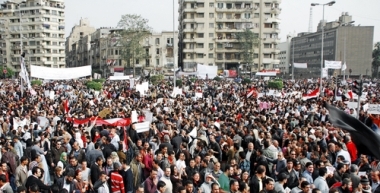The recent protests and mobilizations that affect virtually all capitals and large cities in Brazil against the increase of public transport tickets bring to light the discussion about the possibility of a free transport system in the parents. In this context, there is a debate between those who believe in the possibility and feasibility of the free pass and those who reject this idea. The purpose of this text is to present both sides of this debate.
It should be remembered that, in addition to the positions that defend or oppose free transport, there are other intermediate provisions, such as those that defend the free pass only for students and the elderly, or the one that defends the free pass only for travel for certain purposes.
Positions against the free pass
Regarding the positions and opinions against the free pass, there are two main points: one points to the impossibility of its application, the other to its practical inefficiency.
The first arguments are based on the fact that it is impossible to disseminate free public transport in the country, since such a measure would bring many expenditures to the State, which would transfer this debt to the population in the form of tax increases, making the consumer pay even more, which, in theory, is free.
Furthermore, according to this argument, the transport offered would not be of quality, as there would not be sufficient financial resources to maintain the expenses with: collection and maintenance of vehicles, payment of payroll for employees, creation and maintenance of terminals and bus stops, among others spending. With this, public transport would run the risk of no longer working.
Other arguments even consider the possibility of applying the free pass, but consider that this would not be advantageous. The main defense of this thesis is that such a practice would only benefit the richest population, as it would put rich and poor in the same level, in addition to the fact that the transportation voucher is usually paid by the bosses to their employees, so that the first would be the beneficiaries. Added to this position is the argument that the free pass would make people who can use private transport to use public transport, contributing to overcrowding of vehicles.
The arguments in favor of the free pass
The positions that defend the implementation of the free pass, in general terms, understand free transport as a right of the population and, therefore, a duty of the State. In this line of understanding, when buying a ticket, an individual would actually be “paying twice”, once with the purchase, once with taxes.
The arguments state that it is possible to implement free transport, as long as the bill was not paid in full from taxes, but also by collection of the State, by the private initiative and even with revenues generated by the transport itself, through advertisements on buses and terminals, by example.
Do not stop now... There's more after the advertising ;)
Furthermore, it is argued that the application of the free pass requires the carrying out of a tax reform, since, in Brazil, taxes are levied on products and not on income. In this way, taxes are always attributed to consumption and not to people's earnings. The idea would be to reformulate this dynamic so that the richest pay more and the poorest pay less. In addition, the creation of a specific tax for public transport is proposed, as is the case in the areas of education, health, culture and other sectors.
In fact, it is precisely the gratuitousness of services such as culture, health and education - despite the existence of institutions in these three spheres - which becomes one of the main defenses in favor of public transport free. In this understanding, it is questioned why transport is not free if all other public services are.
After all, are there free transportation systems?
Yes, there are cities where transportation is free. In Europe, the main reference in this regard is the city of Tallinn, capital of Estonia, which has approximately 400 thousand inhabitants.
It works like this: people who live in the city can purchase a card, which allows free movement around the city using public transport, which involves buses, trains and trams. Outsiders or those who don't have a card pay €1.10 for a ticket or €23 for a pass that lasts thirty days.
In Brazil, there are also cities where the free pass is a reality. Cases are registered in the cities of Porto Real (RJ), Ivaiporã (PR) and Agudos (SP).
These examples are used as a form of argument for the two positions that are, respectively, against and in favor of the free pass.
Advocates of free transport cite these cases as examples that tax collection may indeed be enough to cover the costs of public transport. On the other hand, those who are against free transport claim that the cities mentioned have a very small population, so that in large cities and capitals of the country, such a practice would be unfeasible due to the large number of inhabitants and the large distances covered by the vehicles.
Generally speaking, it is believed that it is difficult to find a consensus between the two parties on this issue. What seems to be in agreement is that public transport, in one way or another, needs to improve significantly in the country.
By Rodolfo A. Feather
Graduated in Geography



